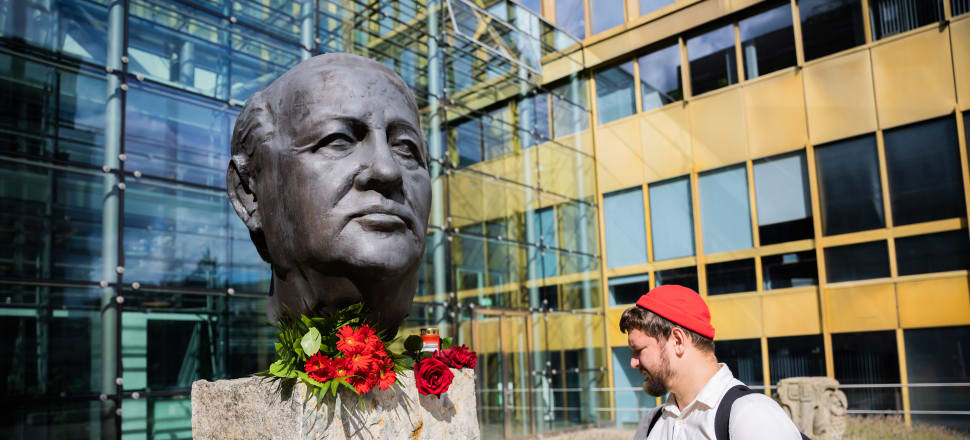
Gorbachev the peacemaker seems the exception in a long history where Russia's leaders have used force to achieve political, national, or ideological goals
Opinion: Mikhail Gorbachev, the last Soviet leader, who died this week, was known as a reformer and heralded as the one who brought the Cold War to an end. He was the Soviet leader admired by many world leaders, including Margaret Thatcher and Ronald Reagan. He was probably the first Soviet leader whose life was not shrouded in secrecy and intrigue, and he would often be seen in public with his wife, Raisa.
Gorbachev only led the Soviet Union for a little over six years but those years were tumultuous. Under his short tenure, he introduced greater openness in Soviet society (glasnost) and a restructuring of the Soviet Communist apparatus (perestroika). He ordered the withdrawal of Soviet troops from Afghanistan, and struck a comprehensive arms control deal with the United States. The risk of nuclear confrontation diminished, and the Cold War seemed all but over.
Unlike previous Soviet leaders, Gorbachev did not intervene when popular protest movements swept across the Communist countries of Eastern Europe in 1989 and the Berlin Wall fell. Even within Soviet borders, he stayed out of a parallel development in Lithuania and other Baltic republics of the Soviet Union that sought to regain their independence. The wave to disestablish the Communist system in Europe became so strong that in the end the country Gorbachev presided over disintegrated in 1991 after several of its 15 republics declared their independence. One of these republics was the Ukrainian Soviet Socialist Republic.
We hear that Vladimir Putin has expressed his condolences to the Gorbachev family. As an American, I am acutely aware that when a former President dies in the United States, flags are flown at half-mast and the body of the President may lie in state at the US Capitol. There will not be anything of the sort for Gorbachev in Putin’s Russia. For many Russians, Gorbachev is often identified as the leader whose actions led to a decline of the Russian state, its loss of superpower status, and its reduced military and economic prowess.
By contrast, Putin has cast himself as the leader who would restore Russia’s greatness and reverse the processes unleashed during Gorbachev’s time. Gorbachev presided over Ukraine’s secession from the Soviet Union, but Putin will try to re-subjugate Ukraine already having annexed Crimea and currently occupying parts of Eastern and Southern Ukraine. Putin has been popular for growing the Russian economy and its military. He appeals to those in Russia who crave a leader who can stand up to Russia’s enemies. Gorbachev is therefore portrayed in Russia today as a weak leader who negotiated with Russia’s adversaries and betrayed Russia’s national interests.
Given the global impact of Russia’s invasion of Ukraine, I cannot help but be sympathetic to the Presidency of Mikhail Gorbachev. His intentions were good and his policies led to the granting of freedoms for the Russian people, who before he came to power had endured nearly seven decades of Soviet oppression.
The Nobel Peace Prize he received in 1990 for his role in ending the Cold War seems justified as he ended armed conflicts rather than started them. By contrast, his predecessors sent in troops to stamp out anti-Communist reforms in Hungary (1956) and Czechoslovakia (1967). They sought regime change in Afghanistan in 1979 and supported the suppression of the Polish Solidarity movement in 1981. Unfortunately, Gorbachev’s successors also have engaged in extensive military operations including Chechnya in the mid-1990s and early 2000s, Georgia in 2008, and in Ukraine since 2014.
Gorbachev the peacemaker seems the exception in a long history in the Russian lands where its leaders have used force to achieve political, national, or ideological goals. Nevertheless, I hope that world leaders will try to emulate his approach and work collaboratively to reduce tensions in the world.







